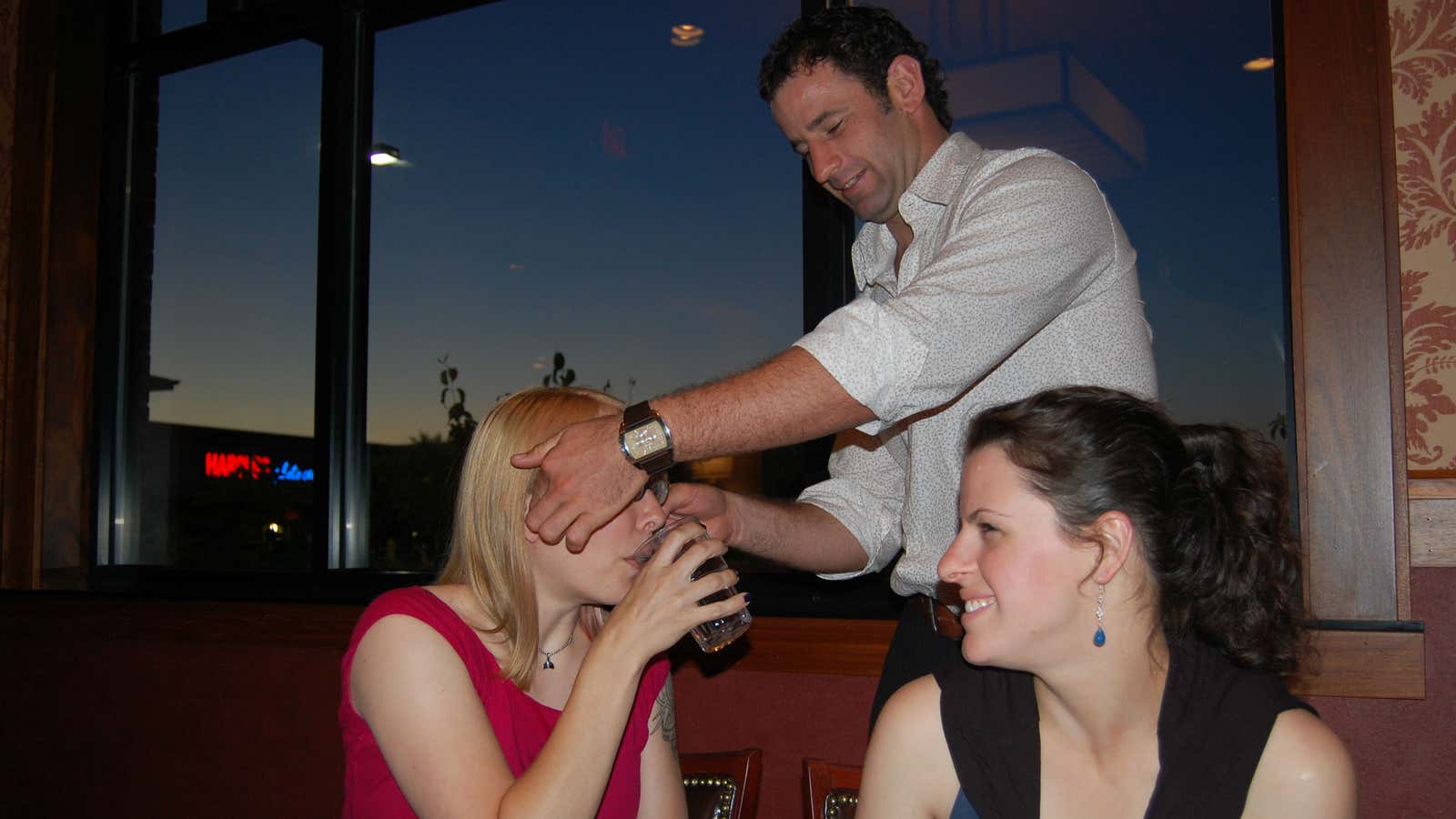For years, I’ve wondered what a hiccup actually is. We all get them. For me, spicy food is a trigger, but hiccups result from laughing too hard, drinking too quickly or even sudden excitement or stress. Even fetuses and animals can get hiccups.
Hiccups occur when our diaphragm—a relatively thin layer of muscle just below our lungs—contracts erratically, usually as a result of our vagus nerve being tickled. The vagus nerve connects our brain to our abdomens and many other major organs. By the end of the hiccup, our glottis—an opening at the top of our vocal chords—quickly closes, and we make the characteristic hic sound.
“It becomes like a tic,” Linda Goldstein, a pediatrician in Washington, D.C., told Quartz. “Tics are unconscious, uncontrollable actions by a muscle…why it starts, we don’t know.”
It may be that hiccups are just one of those bizarre things that our bodies do, like phosphenes—those colorful patterns we see when we close our eyes. According to a scientific paper (paywall): “Hiccups serve no known useful function.”
So how do we get rid of them? In theory, anything that can relieve some of the irritation of the vagus nerve and vocal chords should stop them. Goldstein has seen cases where simply drinking water helps babies with hiccups, but she isn’t sure if this is a result of the water, or simply time. The same goes for startling people: The gasp generated could stop the hiccups, or it could just be taking his or her mind off them long enough for the hiccups to subside.
Anecdotally, taking tiny sips of water, drinking with your ears held, eating a spoonful of peanut butter, or in the case of spice-induced hiccups, drinking milk can help. A friend of mine recommended forcing yourself to gag, which also stimulates the vagus nerve. Though it worked for me (after consuming something with cayenne pepper), it may not be a good solution in public.
Sometimes, hiccups can be a sign of something more serious: Though it’s normal for babies to develop a case of the hiccups (they do spend a lot of time suckling), Goldstein explained that prolonged hiccups could be a sign of esophageal reflux. In adults, persistent or intractable hiccups (lasting more than 48 hours or more than a month, respectively) could be a result of lesions on the brain (paywall), esophageal cancer (PDF), or they can be side-effect of certain drugs, including chemotherapy (paywall).
But usually, hiccups are just a benign annoyance and a part of life.
The photograph above was shared by Flickr user Sonya Green under a Creative Commons license. It has been cropped.
